SUMMARY
This is AI generated summarization, which may have errors. For context, always refer to the full article.
![[OPINION] Dealing with legislative booby traps](https://www.rappler.com/tachyon/2022/04/legislative-booby-traps-april-28-2022.jpg)
Our experiences of the past six years leave no room for indecision. There is work to be done. Massive, bone-wrenching work. The next chief executive will have to relinquish his CEO’s top hat for the more challenging hard hat of a tireless public servant, doubling down the commitment to fix, or perhaps restructure, a largely lopsided system of justice that President Rodrigo Duterte has, by now, standardized.
I cannot stress this enough. While speeding up the economy’s recuperation may be important, no recovery would be possible outside the stability that a working justice system offers. Political strength makes for economic solidity. Returning to the idea of respecting established laws is the key.
Sadly, though, not all laws are the same. Duterte has left us with a number of legal booby traps that, if left uncorrected, will further trigger not only unintended consequences, but unwelcome repercussions.
Anti-Terrorism Law
Duterte has left much of our democratic institutions in ruins. That’s a fact. With the Supreme Court leaving much of the Anti-Terrorism Law intact, it is certain that the same will be used to further restrict the people’s civil rights. Besides complications found in the letter of the law itself, it is in the nature of the same law to be interpreted. The problem with legal interpretations is that they are oftentimes loosely framed to favor the “right” of the state over the constitutionally-assured rights of the people.
The results can be demoralizing. I recall how, in September 2012, and despite the public’s disapproval, the Anti-Cybercrime Law (Republic Act 10175) was enacted under the administration of Benigno Aquino III. The chilling effect not only rippled throughout newsrooms everywhere but was also felt by those who use social media to raise their grievances – them being the primary targets. We have seen how the Duterte regime grabbed this opportunity to harass critics of whatever persuasion or color.
We’ve also witnessed how the Anti-Terrorism Law became the basis of Duterte’s red-tagging campaign, no thanks to the NTF-ELCAC who put the law to “good use.” Speculations as to how this law will again be abused by the next administration – more so if Ferdinand “Bongbong” Marcos wins – run high.
I strongly suggest that the next president trash this law without din or regret within the first 100 days. While terrorism remains a clear and present danger, we’ve witnessed how state terrorism has inflicted more damage and untold suffering on a public too busy to know what hit them.
Oplan Tokhang
Oplan Tokhang and Operation Double-Barrel – which led to the killings of a little over 27,000 to 30,000 suspected drug users based on figures by human rights groups – were carried out on the authority of memorandum circulars signed by former Philippine National Police (PNP) chief Ronald dela Rosa in July 2016.
These memorandum circulars were not grounded on any legal presidential directive, but on statements and campaign promises made by Duterte, hence the absence of legal force to back it up.
Even if such legal directives were in place, no amount of reasoning can warrant the wholesale murder and assassination of suspected drug users. My main beef with such laws, draconian as they are in letter as well as spirit, is that it can be weaponized to include anyone outside the circle of political allies of the next president – rich and poor alike.
This is the reason why Duterte must be held accountable for his crimes. No ifs and buts. Justice that spares powerful allies is no justice at all.
Executive Order No. 70
Executive Order N0. 70 poses another threat. The Commission on Human Rights had once warned the public about EO 70, which served as Duterte’s centerpiece policy, feeding the atrocities committed under his regime’s anticommunist and anti-activist campaigns.
This remnant of Cold-War ideology must soon be swept under the rug, replaced instead by legislation that assures the poor of their lot in a more inclusive and humane society. Filipinos must again think and function as a nation, and not as a capitalist conglomerate. The Philippines is not a corporation; what we are is a community of people. It is thus incumbent for the next administration to comprehend the roots of rebellion and provide real answers to questions surrounding real poverty. Romanticizing charity and dole-outs is passé.
‘Whole-of-Nation Approach’
Duterte’s policies relating to the pandemic stand as another drawback. His highly-militarized pandemic response has raised the ghosts of Martial Law, with the CHR noting in relation to curfew that, “Police and local officials have confined those arrested to dog cages and forced them to sit in the midday sun as punishment, among other abuses.”
Duterte’s “national action plan” to combat COVID-19 involved the Department of National Defense as lead agency, with the Department of Interior and Local Government, the Armed Forces of the Philippines, and the Philippine National Police hot on its heels.
How the next president transforms the national action plan into something largely civilized and demilitarized may prove a challenge. The new chief executive will not want the military and police forces to feel unessential, or unwanted during a national crisis, as this could pose several problems. The next president can start by first reminding the armed forces – by force of executive power, if necessary – of their one and true priority: the people.
Tough decisions
Rene Descartes was of the opinion that, “A state is better governed which has few laws, and those laws strictly observed.”
The French philosopher believed that it’s the essence of human survival to preserve our well-being than assure our mutual destruction. More laws are not the answer. The Bill of Rights is placed right at the center of the Constitution because it is for reasons of equilibrium that the relationship between the government and the governed has been set. Any imbalance, any disproportion that favors the powerful, however small, will have served as a surefire way to ending democracy as we know it.
With eleven days to go before the May 9 polls, let us think of ourselves for once. Like a retreating army, the Duterte regime has left a legislative minefield that can obliterate all our efforts at reforms. If not dealt with severely, these laws will remain as blights and scars on the face of our democratic republic, forever stopping us from moving forward.
This is why elections are never a good time to trifle with tough choices. For once, let us vote for everyone’s benefit. – Rappler.com
Joel Pablo Salud is the author of several books of political nonfiction. He currently saddles his pen as senior desk editor of Rappler.
Add a comment
How does this make you feel?
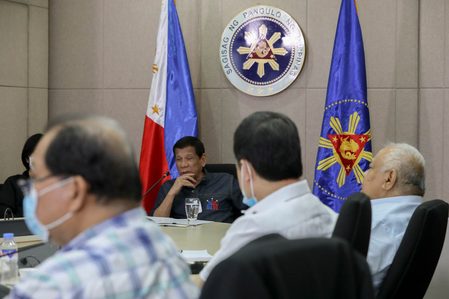


![[New School] Tama na kayo](https://www.rappler.com/tachyon/2024/02/new-school-tama-na-kayo-feb-6-2024.jpg?resize=257%2C257&crop=290px%2C0px%2C720px%2C720px)
![[Only IN Hollywood] After a thousand cuts, and so it begins for Ramona Diaz and Maria Ressa](https://www.rappler.com/tachyon/2024/02/Leni-18.jpg?resize=257%2C257&crop=262px%2C0px%2C720px%2C720px)
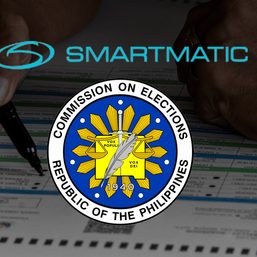



![[Just Saying] Diminished impact of SC Trillanes decision and Trillanes’ remedy](https://www.rappler.com/tachyon/2024/04/Diminished-impact-of-SC-Trillanes-decision-and-remedy.jpg?resize=257%2C257&crop=273px%2C0px%2C720px%2C720px)
![[Rappler Investigates] Son of a gun!](https://www.rappler.com/tachyon/2024/03/newsletter-duterte-quiboloy.jpg?resize=257%2C257&crop=450px%2C0px%2C1080px%2C1080px)

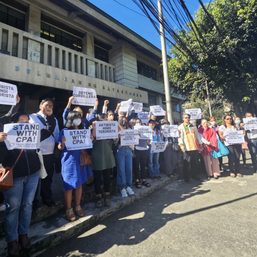
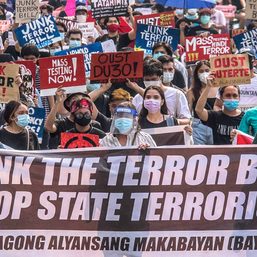
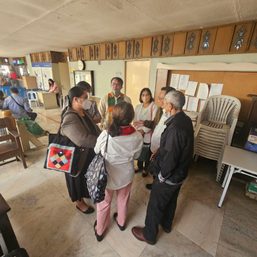
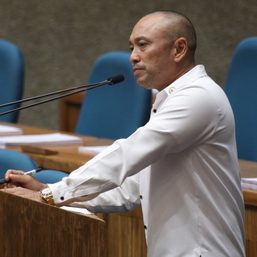


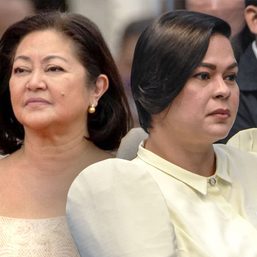
![[OPINION] ‘Some people need killing’](https://www.rappler.com/tachyon/2024/04/tl-some-people-need-killing-04172024.jpg?resize=257%2C257&crop_strategy=attention)
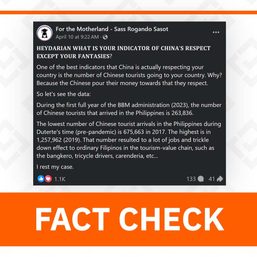
There are no comments yet. Add your comment to start the conversation.